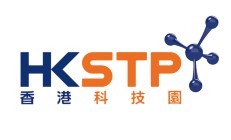Established in May 2001, Hong Kong Science & Technology Parks Corporation (HKSTP) has a mission to build a vibrant innovation and technology ecosystem by connecting stakeholders, nurturing technology talents, facilitating collaboration, and catalysing innovations. As a key player driving the development of Hong Kong into a regional hub for innovation and growth, HKSTP supports technology companies with state-of-the-art R&D facilities, infrastructure, laboratories and value-added services to bring social and economic benefits to the region.
HKSTP focuses on five technology clusters: Biomedical Technology, Electronics, Information & Communications Technology, Green Technology, and Materials and Precision Engineering. Hong Kong Science Park, the core facility of HKSTP, currently hosts more than 670 companies from 22 countries and regions, among which, 263 are being incubated. The Park has a working population of about 13,000, more than 70% of whom are involved in R&D. During fiscal year 2017-2018, HKSTP has successfully raised HK$1.2 billion capital for Park companies through direct engagement.
A customer-centred approach
With the help of HKSTP, InvivoGen, a French biotech company specialising in innate immunology, set up its regional headquarters for Asia and R&D base in Hong Kong Science Park with a smooth experience. “We arrived in July 2014 and within six weeks, the labs were set up,” said Alexandre Peurichard, the company’s Asia operations manager. “We don’t have to purchase expensive equipment or go out to rent office space, as these are all provided by HKSTP.”
Besides core facilities and laboratories, which are of reduced rent, HKSTP also provided legal, tax, and staff training consultancy services to InvivoGen to familiarise it with the local market. “This is very helpful for a small company from overseas,” said Peurichard.
Lee’s Pharmaceutical (HK) Limited, a local drug company with offices and manufacturing bases in mainland China, was one of the first to arrive at Hong Kong Science Park in 2005. Benjamin Li, its CEO said, “We were attracted to the rich communication opportunities with various parties, ranging from potential clients to government bodies.” HKSTP coordinated with relevant regulatory bodies to help Li get a manufacturing licence for his FDA-certified factory. “They also organised conferences and visits to help us connect with potential clients in mainland China,” he said.
For Juliana Chan, a professor at the Chinese University of Hong Kong and chairperson of GemVCare Limited, a biogenetic testing lab specialised in diabetes, HKSTP’s comprehensive incubation programmes cater to their needs. Chan and her colleagues received incubator funding from HKSTP and benefited from its many schemes, ranging from the internship programme and professional workshops, to travelling grants for competitions or exhibitions. “They also introduce lawyers and IP/patent experts to help us identify potential investors and polish our proposals, increasing our chances of success,” said Chan.
Support on biomedical ecosystem
HKSTP has played a pivotal role in nurturing biomedical technology in Hong Kong. As the home for more than 100 biotechnology companies with business scopes spreading across medical devices, stem cell research, genomics and regenerative medicine, molecular diagnosis, as well as R&D on Chinese and Western medicines, HKSTP provides shared equipment, a cell culture room, genomics laboratory and other facilities at its Biomedical Technology Support Centre. Incu-Bio, one of the three incubation programmes offered by HKSTP, is a four-year programme that provides comprehensive support to biotechnology start-ups.
In March 2018, HKSTP launched a Healthcare Devices Innovation Hub, Hong Kong’s first theme-based hub focusing on healthcare, to accelerate healthcare device product development from prototyping, testing to clinical evaluation. It will assist local and overseas entities, including universities, research institutes and enterprises, offering them one-stop services in healthcare device innovation, ranging from shared facilities with sophisticated prototyping and testing equipment and software, to talent recruitment and business guidance.
A gateway connecting China and the world
While mainland China has a large emerging market and abundant opportunities for technology innovation, HKSTP will leverage the relevant and complementary resources to promote diversified and high-value economic development. “A solid research base and inviting environment make Hong Kong a good place to generate and retain talent,” said Li.
“In Hong Kong, we have a good base for biomedical innovation,” said Chan. “We have excellent legal system for IP protection and our universities are strong in life science and biomedical research, generating many talents in the biotech sector. We also have access to volunteers and a large pool of patients for clinical trials.” There are already three CFDA accredited clinical trial centres in Hong Kong. Trial results can be used for marketing approval submission in mainland China. HKSTP also fosters collaboration with hospitals and research institutes in mainland China to consolidate data for healthcare research.
With its sights set on the mainland China market, InvivoGen’s management was attracted to Hong Kong for its proximity to mainland China and its more supportive legal, intellectual property and tax systems. “Hong Kong is a good gateway to mainland China,” said Peurichard. “It enables convenient contact with our partners in Guangzhou and Shenzhen.”
The Hong Kong Government has stepped up its efforts to keep up with the global race for science and technology innovation. In 2018, it has set aside HK$50 billion for innovation and technology, according to the government’s latest budget speech. Of this, HK$10 billion will be allocated to HKSTP to construct research-related infrastructure and facilities, enhancing support for the Park companies. Another HK$10 billion is earmarked for establishing two research clusters, respectively on healthcare technologies and artificial intelligence/robotics technologies.
There are also multiple schemes, including the Innovation and Technology Fund (ITF) that supports applied R&D work, additional tax deduction for domestic expenditure on R&D, the Technology Talent Admission Scheme that provides funding for eligible companies to recruit technology talent, as well as a “Postdoctoral Hub” programme that is to be launched later this year for recruitment of postdoctoral talent.
“We are working on opening the European and US markets for our ophthalmic drug manufacturing plant in Guangzhou,” said Li. “And Hong Kong is an ideal base for international collaboration and technology transfer.”






 Spotlight on Hong Kong
Spotlight on Hong Kong